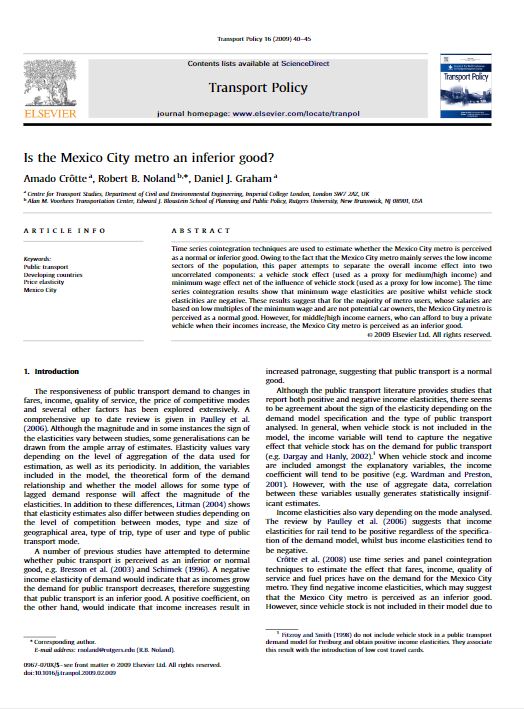Crôtte, A., Noland, R.B. & Graham, D.J., (2009). Is the Mexico City Metro an Inferior Good? Transport Policy, vol. 16, no. 1, pp. 40-45. https://doi.org/10.1016/j.tranpol.2009.02.009
Abstract
Time series cointegration techniques are used to estimate whether the Mexico City metro is perceived as a normal or inferior good. Owing to the fact that the Mexico City metro mainly serves the low income sectors of the population, this paper attempts to separate the overall income effect into two uncorrelated components: a vehicle stock effect (used as a proxy for medium/high income) and minimum wage effect net of the influence of vehicle stock (used as a proxy for low income). The time series cointegration results show that minimum wage elasticities are positive whilst vehicle stock elasticities are negative. These results suggest that for the majority of metro users, whose salaries are based on low multiples of the minimum wage and are not potential car owners, the Mexico City metro is perceived as a normal good. However, for middle/high income earners, who can afford to buy a private vehicle when their incomes increase, the Mexico City metro is perceived as an inferior good.
